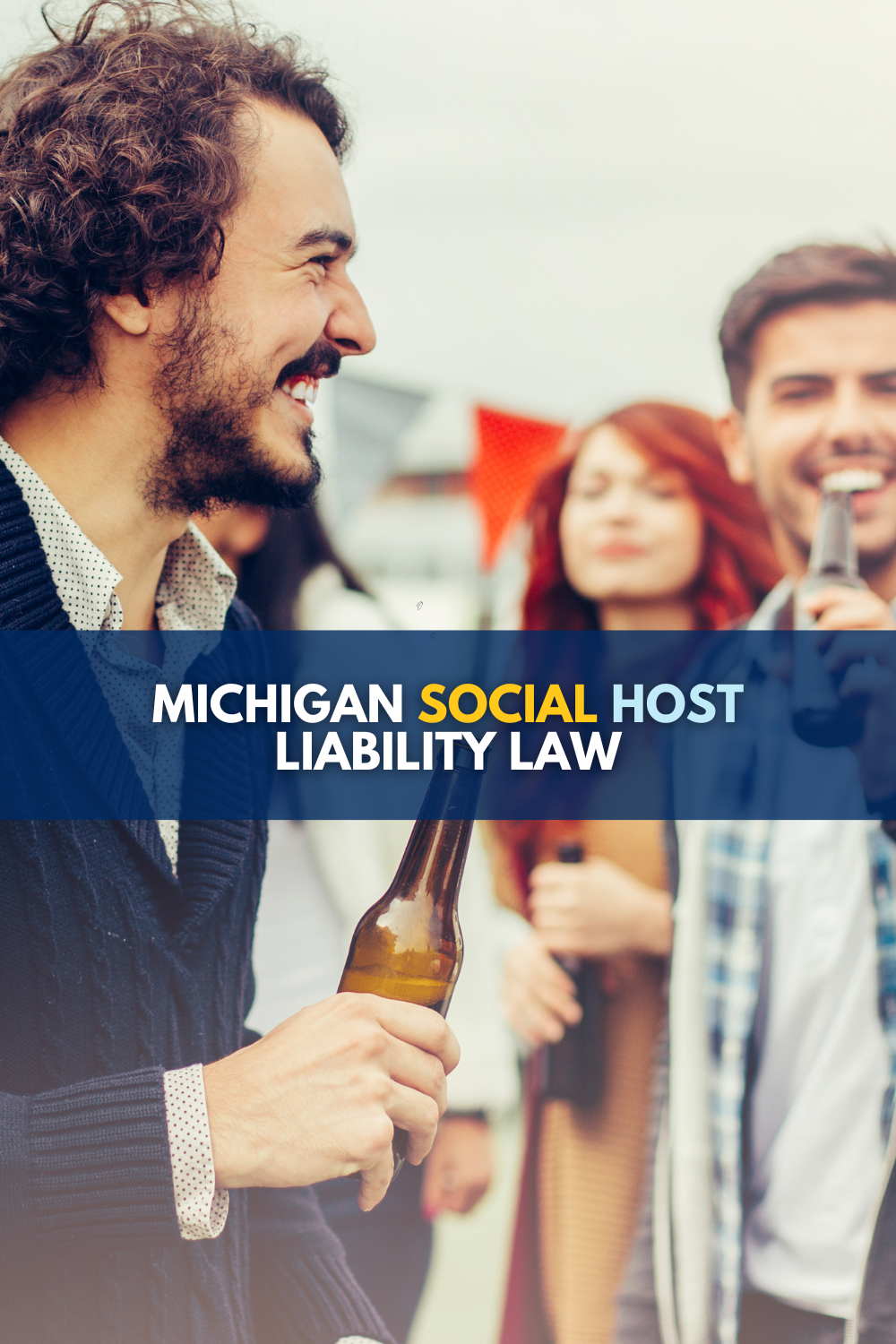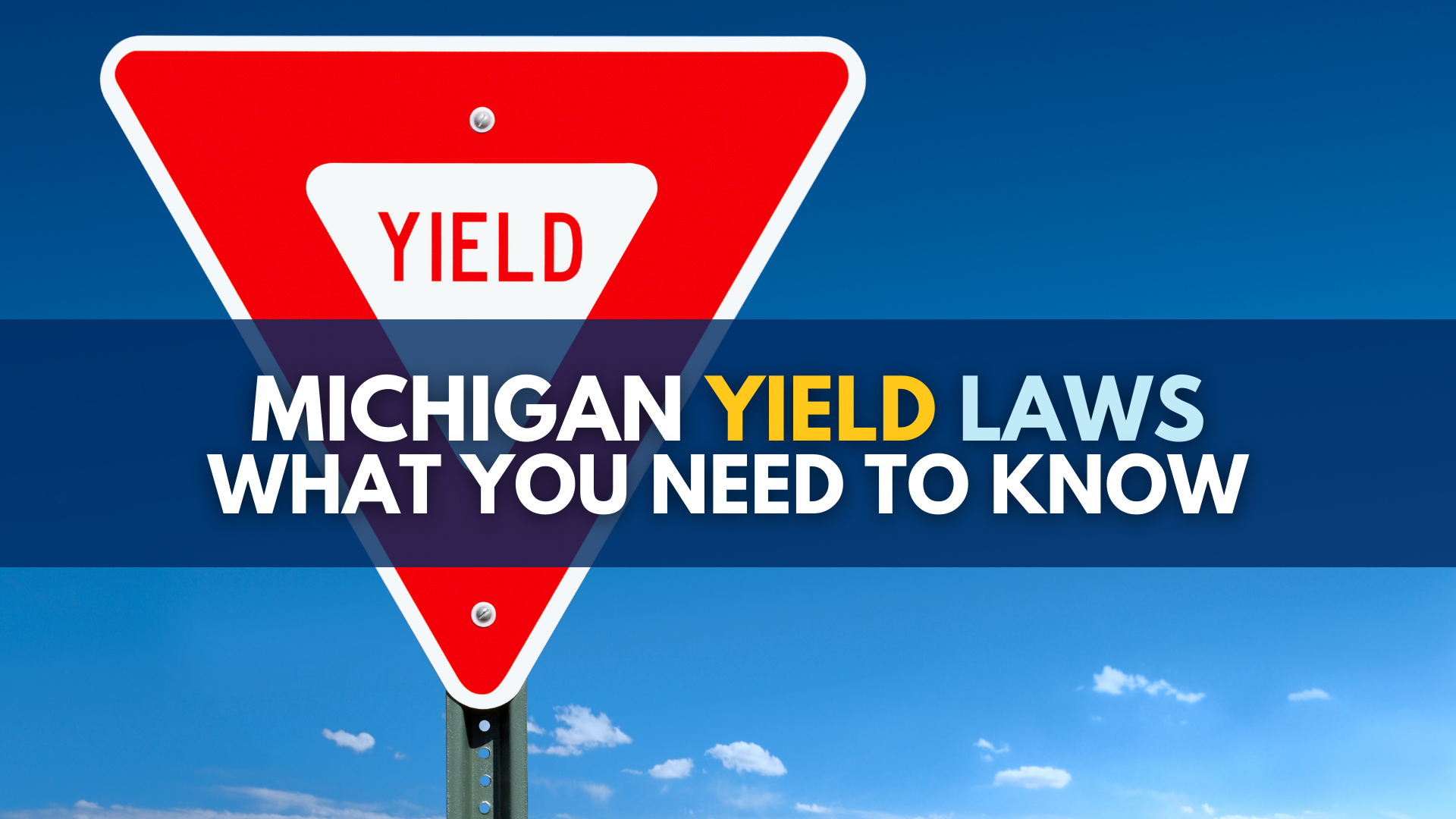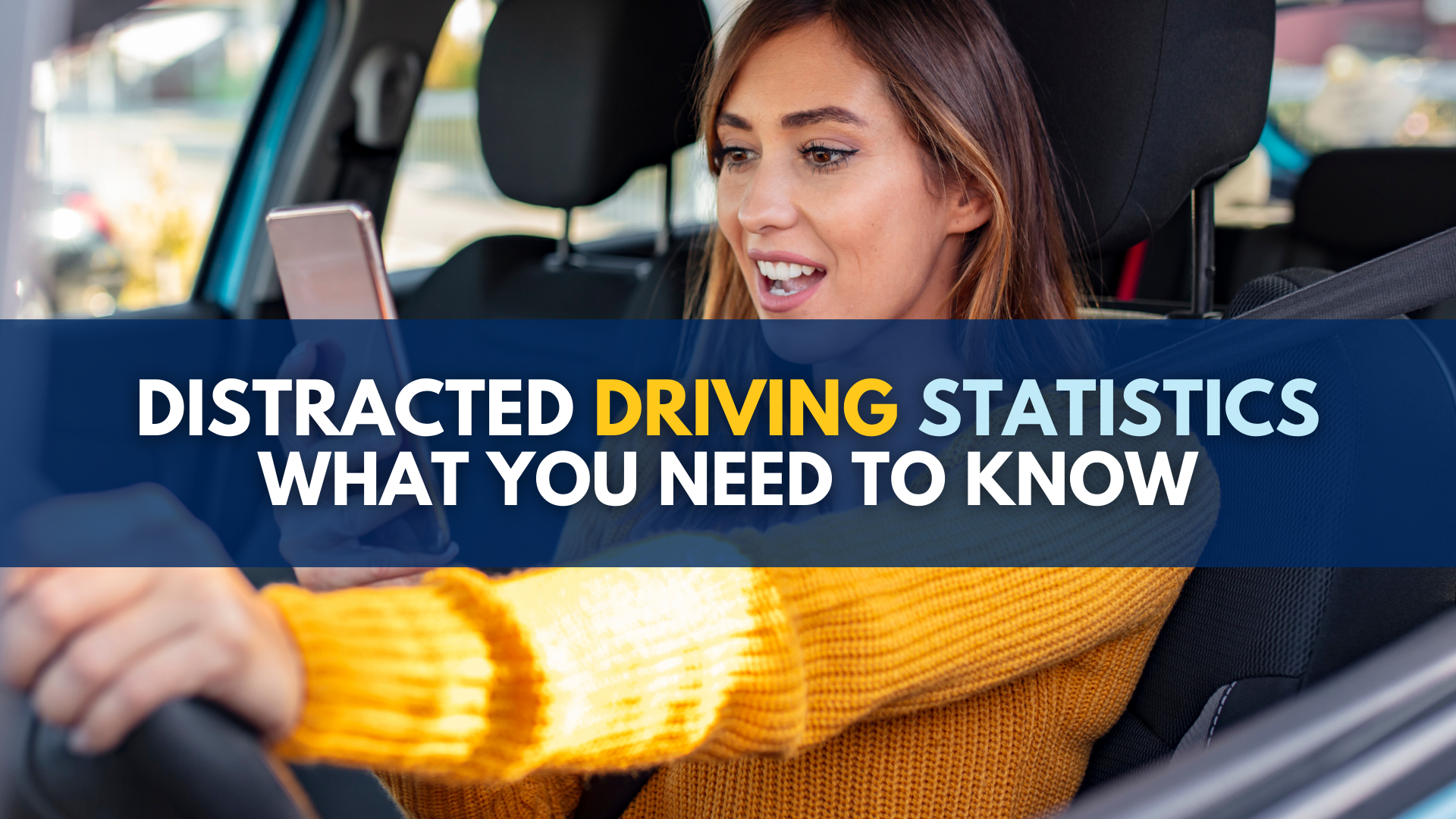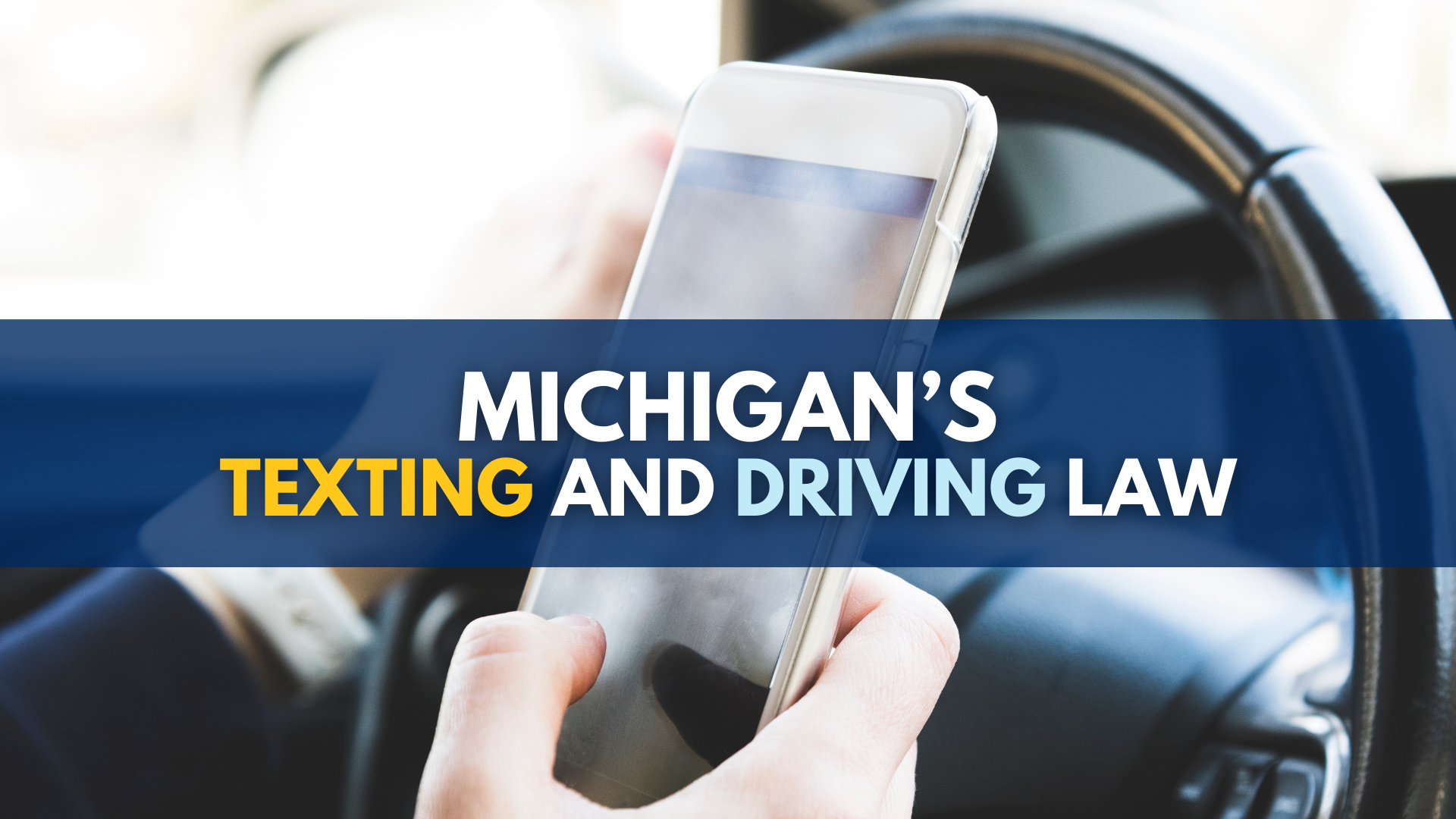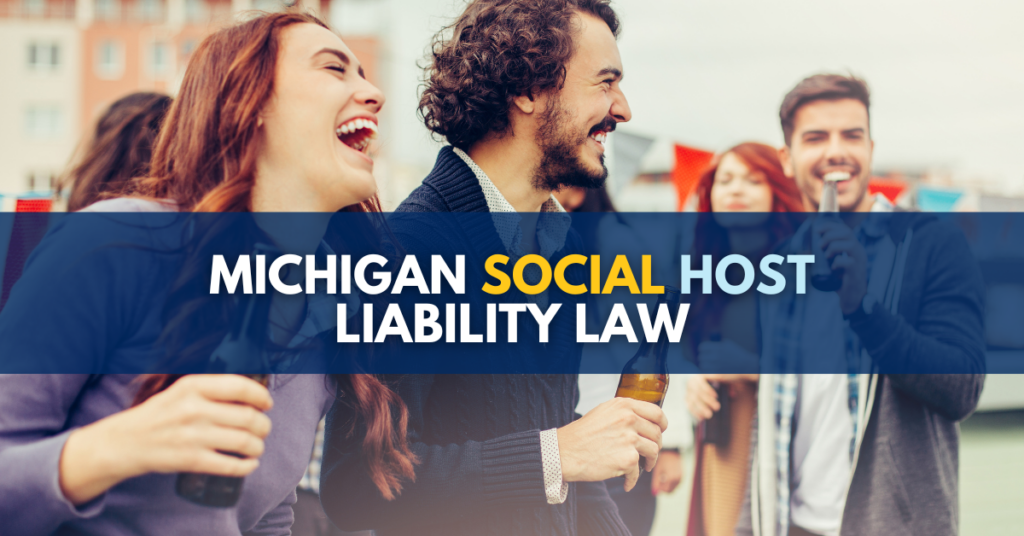
Knowing about the Michigan social host liability law will help you protect your guests, your community and your family. Preventing minors from consuming alcohol in your home is the law. Failure to do so in your own home exposes you to legal liability in the event that tragedy strikes.
Under Michigan law, if a social host – someone who is throwing a party or even having a “get together” in their home – furnishes alcohol to a minor or allows a minor to consume alcohol and that minor causes a car crash injuring the minor and others, then the social host may be sued and held legally liable.
Social hosts are not subject to the same liability if an adult guest to whom alcohol is provided causes an auto accident resulting in injury or death to the adult or others.
It is important to note that in addition to running the risk of being subject to social host liability law, a person who provides alcohol to minors – even if no automobile accident resulting in an injury or death occurs – may still be subject to criminal liability. Criminal liability includes a conviction, possible jail time and costly fines.
To learn more, check out this video of Michigan Auto Law attorney Brandon Hewitt’s interview with WZZM Channel 13:
What is a social host liability law?
A social host liability law imposes legal liability on social hosts – people that host a party or a gathering in their home or some place under their control – when their guests to whom they have served and/or provided alcohol cause injury to themselves or others.
Does Michigan have a social host liability law?
Yes and no. Michigan does have a social host liability law that imposes liability on social hosts when they have provided or furnished alcohol to minors – or allowed minors to consume alcohol – and those minors then injure themselves or others. However, Michigan has no social host liability law as it relates to other adults.
How does Michigan’s social host liability law apply when minors are involved?
If social hosts sell or furnish alcohol to minors – or allow minors to possess or consume alcohol in their home – then the social hosts may be able to be held legally liable for death or injuries that the minors cause to themselves or to other third parties.
How does Michigan’s social host liability law apply when adults are involved?
There is no Michigan social host liability law that applies to adults. Social hosts cannot be held liable for death or injuries caused by adult guests to whom they have furnished, served and/or provided alcohol.
What laws could trigger Michigan’s social host liability law concerning minors?
The Michigan Liquor Control Code prohibits any “person” from selling or furnishing “alcoholic liquor to a minor.” (MCL 436.1701(1)) The Michigan Penal Code prohibits people from allowing minors to “consume or possess an alcoholic beverage at a social gathering” on their premises. (MCL 750.141a(2))
Under the Michigan Liquor Control Code, before selling or furnishing alcohol to an individual, a person must “make diligent inquiry as to whether the individual is a minor.” (MCL 436.1701(1))
Under both laws, a “minor” is “an individual less than 21 years of age.” (MCL 436.1109(6); 750.141a(1)(f))
Aside from social host liability in a civil lawsuit, is there criminal liability for providing alcohol to minors?
Yes. Selling or furnishing alcohol to minors is a misdemeanor, punishable by a fine up to $1,000 and up to 60 days in jail. (MCL 436.1701(1)) Allowing minors to possess or consume alcohol on your premises is also a misdemeanor, punishable by a fine up to $1,000 and up to 30 days in jail. (MCL 750.141a(4)
However, if a minor’s consumption of the alcohol you sold or furnished is “a direct and substantial cause of the minor’s death or an accidental injury that causes the minor’s death,” then that is a felony, punishable by up to 10 years in prison and a fine up to $5,000. (MCL 436.1701(2))
How does unlawfully allowing minors to consume alcohol trigger the law?
To establish the law based on providing alcohol to minors, one must prove negligence. Under Michigan law, violation of a statute – such as the statute prohibiting selling or furnishing alcohol to minors and/or allowing minors to consume alcohol – creates a rebuttable presumption of negligence. (See: Zeni v. Anderson, 397 Mich 117, 128-129, 143; 243 NW2d 270 (1976); Longstreth v. Gensel, 423 Mich 675; 377 NW2d 804 (1985); Klanseck v. Anderson Sales & Service, Inc, 426 Mich. 78, 86 (Mich. 1986); M Civ JI 12.01 – “Violation of Statute – Negligence”). Negligence can also be established by the failure to exercise ordinary care. For example, if you own a home and have a bunch of teenagers drinking from “water bottles” and these teens engage in behavior that increasingly indicates that they are intoxicated, negligence may also be established. Willful ignorance is not an excuse or defense to the failure to exercise ordinary care as a homeowner.
What are the elements of a claim under Michigan’s social host liability law?
To make a claim, one must show: (1) an injury has been suffered; (2) the injury was caused by a minor (under 21) in an alcohol-related incident; (3) the social host provided alcohol to the minor (and/or “failed to make diligent inquiry” whether the individual was a minor; and (4) service of the alcohol to the minor caused the person’s injury.
Is this law the same as dram shop liability?
No. Social host liability law applies only to social hosts – private individuals – and only when they have provided alcohol to minors who them injure themselves or others. Dram shop liability applies to bars and restaurants – which are licensed to sell and serve alcohol – when their alcohol consumption causes their adult customers to injure others.
However, dram shop liability for an injury caused by a minor can also exist against a bar or restaurant if “by reason of the unlawful selling, giving, or furnishing of alcoholic liquor to [a] minor” the minor causes injury to someone else. (MCL 436.1801(1) and (2))
How to be a safe host and protect yourself
If you are have a party where alcohol will be served, we recommend taking the following steps to keep everyone safe and to protect you and your family from a claim for social host liability:
Hire an experienced bartender to serve drinks because he or she will have the training to spot signs of intoxication and the objectivity to “make diligent inquiry” as to whether someone is 21 years of age and, thus, old enough to drink legally
- Arrange for one or more designated drivers to be available
- Encourage guests to use Uber or Lyft or call a taxi
- Stock plenty of non-alcoholic beverages and serve food
- Determine and announce a party time ending well in advance
- Do not serve alcohol to minors (and do not allow guests do so)
- Circulate around your home periodically to make sure minor guests have not snuck off to secretly consume alcohol
Get help from a Michigan Auto Law auto accident attorney: Call for a free consultation
If you were injured in a car crash and have questions about your legal rights to pain and suffering compensation, economic damages and auto No-Fault insurance benefits, or if you or a loved one was injured due to a social host providing alcohol to minors, you can call toll free anytime 24/7 at (800) 968-1001 for a free consultation with one of our experienced auto accident attorneys. You can also get help by visiting our contact page or you can use the chat feature on our website.
